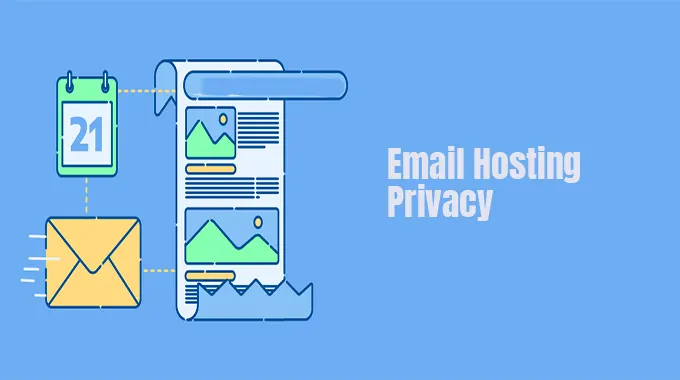Email has become the backbone of modern communication, making privacy in email domain Australia more crucial than ever.
Whether you are sending personal messages or handling business communications, understanding email hosting privacy can help protect your sensitive information from potential threats.
What Makes Email Hosting Private and Secure?
Private email hosting from Australian domain hosts involves multiple layers of security working together to protect your conversations. The best email providers for privacy use advanced encryption methods to scramble your messages, making them unreadable to anyone trying to intercept them.
Consider encryption a secret code only you and your receiver can understand. When you send an email, it travels through various servers before reaching its destination, and encryption ensures it stays protected throughout this journey.
Email Hosting Privacy: Essential Security Features to Look For
When choosing secure email services, several key features deserve your attention:
- End-to-End Encryption: This ensures your messages remain encrypted from the moment you hit send until they reach the recipient’s inbox. It is like putting a letter in a locked box that only you and the person you are giving it to can open.
- Two-Factor Authentication (2FA): This adds an extra security step beyond just your password. When you log in, you will need to provide another form of verification, a code sent to your mobile.
- Spam Filtering: Advanced spam filters act like bouncers at a club, keeping unwanted and potentially dangerous emails out of your inbox. They check incoming messages for suspicious content and known spam patterns.
Email Hosting Privacy: Understanding Email Security Protocols
Email security gateways use several important protocols to keep your messages safe:
- SPF (Sender Policy Framework): This protocol verifies that emails actually come from who they claim to be from. It prevents scammers from pretending to be legitimate senders.
- SSL/TLS Encryption: Similar to how banks handle online transactions, these protocols encrypt your device-email server communication.
Email Hosting Privacy: Choosing the Best Email Provider for Privacy
When selecting an email hosting service, consider these factors:
- Storage Location: Some providers store emails in countries with strict privacy laws, offering better protection for your data.
- Privacy Policy: Look for providers that clearly explain how they handle your data and promise not to share it with third parties.
- Backup Systems: The best email providers for privacy maintain secure backups of your messages while ensuring they remain encrypted and protected.
Email Hosting Privacy: Common Email Privacy Threats and Protection
- Phishing Attacks: Scammers try to get you to give them private information by claiming to be real businesses. Always verify unexpected requests for personal information.
- Malware: Harmful software can arrive through email attachments. Never open attachments from unknown senders.
- Password Attacks: Hackers might try to guess your password. Use strong, unique passwords and change them regularly.
Tips for Maintaining Email Privacy
- Use strong, unique passwords combining letters, numbers, and symbols
- Enable encryption features offered by your email provider
- Regularly update your email client and security software
- Be cautious about sharing sensitive information through email
- Check the privacy settings of your email account regularly
Conclusion
The landscape of email security continues to evolve, but the fundamentals remain the same: choose a reputable provider, use strong security features, and stay vigilant about potential threats.
With these email hosting privacy measures in place, you can enjoy the convenience of email while maintaining your privacy and security.












